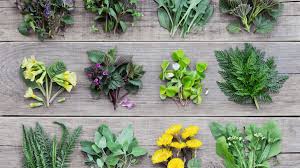
Breaking News
 From Inflation to Hyperinflation: The Gathering Monetary Hurricane
From Inflation to Hyperinflation: The Gathering Monetary Hurricane
 Deputy Attorney General Todd Blanche Fired Ed Martin as Chief of DOJ's Weaponization...
Deputy Attorney General Todd Blanche Fired Ed Martin as Chief of DOJ's Weaponization...
 Clintons Bend The Knee To Comer, Agree To Testify In House Epstein Inquiry
Clintons Bend The Knee To Comer, Agree To Testify In House Epstein Inquiry
 White House Ignores Congress -Hands More Weapons To Israelis & Saudis
White House Ignores Congress -Hands More Weapons To Israelis & Saudis
Top Tech News
 How underwater 3D printing could soon transform maritime construction
How underwater 3D printing could soon transform maritime construction
 Smart soldering iron packs a camera to show you what you're doing
Smart soldering iron packs a camera to show you what you're doing
 Look, no hands: Flying umbrella follows user through the rain
Look, no hands: Flying umbrella follows user through the rain
 Critical Linux Warning: 800,000 Devices Are EXPOSED
Critical Linux Warning: 800,000 Devices Are EXPOSED
 'Brave New World': IVF Company's Eugenics Tool Lets Couples Pick 'Best' Baby, Di
'Brave New World': IVF Company's Eugenics Tool Lets Couples Pick 'Best' Baby, Di
 The smartphone just fired a warning shot at the camera industry.
The smartphone just fired a warning shot at the camera industry.
 A revolutionary breakthrough in dental science is changing how we fight tooth decay
A revolutionary breakthrough in dental science is changing how we fight tooth decay
 Docan Energy "Panda": 32kWh for $2,530!
Docan Energy "Panda": 32kWh for $2,530!
 Rugged phone with multi-day battery life doubles as a 1080p projector
Rugged phone with multi-day battery life doubles as a 1080p projector
 4 Sisters Invent Electric Tractor with Mom and Dad and it's Selling in 5 Countries
4 Sisters Invent Electric Tractor with Mom and Dad and it's Selling in 5 Countries
Ten wild edibles in North America that could save you in a survival situation

Across North America's forests, fields, and wetlands grows an unregulated apothecary — plants densely packed with vitamins, minerals, and healing compounds. But this bounty comes with a caveat: for every life-sustaining wild green or berry, there exists a nearly identical twin capable of inducing organ failure.
Survival isn't just about stockpiling beans and bullets — it's about recognizing the land's hidden abundance while avoiding its lethal decoys. This is primal knowledge, the kind that sustained indigenous cultures for millennia and can keep modern foragers alive when supply chains crumble.
Key points:
Wild edibles from dandelions to cattails provide emergency calories, critical nutrients, and natural medicine.
Deadly lookalikes like death camas (vs. wild garlic) and horse nettle (vs. stinging nettle) demand 100% identification certainty.
Foraging ethics protect ecosystems: Never over harvest, avoid polluted areas and respect private property.
Processing methods matter: leaching acorns and neutralizing nettle stings make these otherwise toxic plants edible.
Saw palmetto berries (immune support) and red clover (blood purifier) offer medicinal options.
Wild food as survival insurance
The dandelion (Taraxacum officinale), dismissed as a lawn weed, carries more vitamin A than carrots and enough potassium to rival bananas. Its root, when roasted, becomes a caffeine-free coffee substitute rich in prebiotic inulin — a gut health essential when processed foods vanish. But complacency kills: false hawksbeard and catsear mimic dandelion leaves, though their branched flower stems and lack of milky sap betray them.



